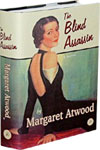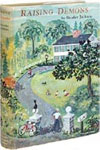Fr. Michael O'Flanagan :Sceilg's Graveside Oration, August 10, 1942
Sceilg (Ua Ceallaigh, Seán/O'Kelly, J. J.)
From
Dublin Bookbrowsers, Dublin, NONE, Ireland
Seller rating 2 out of 5 stars
![]()
Heritage Bookseller
AbeBooks member since 1996
About this Item
Description:
4pp. Scarce. Born near Castlerea, County Roscommon, O'Flanagan's parents were native Irish speakers. He received his primary education at Cloonboniffe N.S. before traveling to Sligo where he attended secondary school at Summerhill College. He graduated in 1894, and continued his education at St Patrick's College, Maynooth where he was ordained for the Diocese of Elphin in 1900. After joining the priesthood he returned to Summerhill College where he was employed as a teacher until 1904. O'Flanagan became involved with Irish language revival while teaching. He was a skilled orator and started agitating for radical social and political change. In 1915 he was transferred to Cootehall, near Boyle, County Roscommon and was sanctioned by his Bishop when accused of making a speech disloyal to the crown. He also offended nationalists in a letter to Freeman's Journal in June 1916 when he supported Lloyd George's proposal that the twenty-six counties should have immediate home rule. Vice-President of Sinn Féin, O'Flanagan was chosen to recite the invocation at the first meeting of the newly proclaimed Dáil Éireann in January 1919. In late January 1921, during the Irish War of Independence, O'Flanagan met informally in London with Sir Edward Carson and Judge James O'Connor to discuss a peaceful solution to the conflict, but without success. Nearly a year later the Anglo-Irish Treaty was ratified by both sides. In 1927 he was suspended from clerical duties because of his nationalist activities. In March 1926, Sinn Féin held its Ard Fheis. Flanagan and Mary MacSwiney led the section from which Éamon de Valera broke away. The conference instructed a joint committee of representatives from De Valera's faction and that of Flanagan to arrange a basis for co-operation. The Ard Fheis issued a statement declaring "the division within our ranks is a division of Republicans." The split concerned entry to Dáil Éireann in 1926. De Valera took the great majority of Sinn Féin support with him when he founded Fianna Fáil but O'Flanagan maintained his radical stance on social issues in the republican journal An Phoblacht. He was president of Sinn Féin from 1933 to 1935, when he was expelled from the party for taking a state job on the Placenames Commission and participating in a Radio Éireann programme. He was one of the few Catholic priests to defend the Spanish Republic during the Spanish Civil War. Sceilg, John Joseph O'Kelly joined Sinn Féin at its inaugural meeting on 5 November 1905. Following the 1916 Easter Rising, O'Kelly joined the Irish National League and became treasurer of the Irish National Aid and Volunteers' Dependants' Fund for the relief of prisoners and their families. In February 1917 he was arrested and deported to England where he was interned without trial for several months. On his release O'Kelly was elected to the Provisional Committee of the newly merged Irish National League and Sinn Féin, thereafter called Sinn Féin. He was appointed editor of the influential "Catholic Bulletin". In the United Kingdom general election, 1918 he was elected as a Sinn Féin MP for Louth by 255 votes in what was the closest contest in Ireland in that election. O'Kelly took his seat in Dáil Éireann as a Sinn Féin Teachta Dála and was Leas-Cheann Comhairle (Deputy chairman) from 1919-21. He was Secretary for Education in the Government of the 2nd Dáil. From 1919 to 1923, he was President of the Gaelic League. He opposed the Anglo-Irish Treaty that was ratified by the Dáil in January 1922, and refused to accept the legitimacy of the Irish Free State established in December 1922. He and others maintained that the Irish Republic continued to exist and that the rump of the Second Dáil, composed of those anti-Treaty TDs who had refused to take their seats in what became the Free State parliament, was the only legit. Seller Inventory # 012765
Bibliographic Details
Title: Fr. Michael O'Flanagan :Sceilg's Graveside ...
Publisher: National Aid Auxiliary Committee, Dublin
Publication Date: 1942
Binding: No Binding
Condition: Good
AbeBooks offers millions of new, used, rare and out-of-print books, as well as cheap textbooks from thousands of booksellers around the world. Shopping on AbeBooks is easy, safe and 100% secure - search for your book, purchase a copy via our secure checkout and the bookseller ships it straight to you.
Search thousands of booksellers selling millions of new & used books
New & Used Books
New and used copies of new releases, best sellers and award winners. Save money with our huge selection.
Rare & Out of Print Books
From scarce first editions to sought-after signatures, find an array of rare, valuable and highly collectible books.



